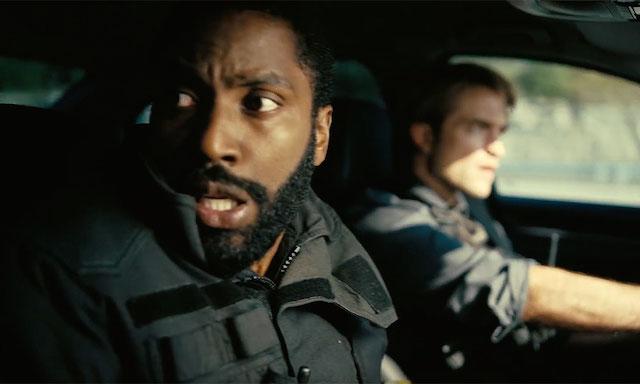When you come right down to it, 'Tenet' is a mess. A gloriously shot, exquisitely staged mess with a thrilling final act - but still a mess.
After being brutally tortured following a botched hostage situation, the Protagonist (John David Washington) is sent after a Russian arms dealer (Kenneth Branagh) who has discovered a way to reverse the flow of time in weapons. As the Protagonist delves further into the twilight world of super-science and espionage, the full scale of the threat he faces begins to emerge...
That's about as much of 'Tenet' that makes sense when put down in text. After that, you're really on your own. So much of the marketing for the movie has been about experiencing it rather than understanding it, and the vagueness in the various trailers is meant to make you feel as blind as possible going in. 'Tenet', however, has the unique property of being just as confusing and oblique going in as it is coming out the other side.
Christopher Nolan's work always centres around distilling complex ideas and theories into mass-market blockbusters for something with a unique flavour. The scenery changes, explosions go off, exposition is delivered, but you're still grasping - trying to make sense of it. Even on a second viewing, there isn't enough in 'Tenet' to make you latch on to it.
How often is a movie screened for press not once, but twice? 'Tenet' is the only film I know of where multiple press screenings were offered over the course of a week, presumably because the plot is so indecipherable it's thought that a second run-through might help make sense of it. But should you have to watch a movie three, four times to make sense of it? Consider something like 'Memento' or 'Inception'. Tenet isn't complex storytelling failing to be comprehensible, it's just bad storytelling.
Given how anticipated 'Tenet' has been, how much of a reputation Christopher Nolan has with audiences, it's hard to imagine that hubris didn't play a large part in this basic failure. After all, he's the director who managed to make dream-stealing into something easy to follow, so why couldn't he blend nuclear physics, thermodynamics and entropy, and espionage together in a blockbuster vehicle? The problem with 'Tenet' is that while you can have all these esoteric elements floating around the story, the story itself fails to make enough sense for the audience to grasp them. It's not that the film is missing drudging scenes of exposition, but rather there's a lack of flow and logic to what you're seeing in order to be able to understand it.
The dialogue throughout is clunky and unconvincing, lacking any kind of emotional context or even a level of humanity to it. John David Washington has the physical presence required and his action chops can't be denied, but beyond that, there's not much else going on. Kenneth Brannagh is, yet again, hamming it up with a Russian accent while Elizabeth Debicki is the only one who actually seems like she's making any kind of connection with the audience. Even at that, it's not much. Robert Pattinson, meanwhile, smiles winsomely and makes a one-liner here and there, but again, you just know he's capable of more, but he's used so fruitlessly.
When you come right down to it, 'Tenet' is a mess. A gloriously shot, exquisitely staged mess with a thrilling final act - but still a mess. The irony here is that the word 'Tenet' comes from something called a Sator Square, a Latin palindrome word square, which can be read backwards, forwards, up or down, and still make sense. There are references to it all over the movie.
It could be that you need to play 'Tenet' backwards and flip it upside down to make sense of it and to appreciate it better. Maybe you need to suspend yourself from a fifth dimension to get what's happening. But watching it in a cinema, played forward the way humanity currently experiences time, it's pretty disappointing.





















































































